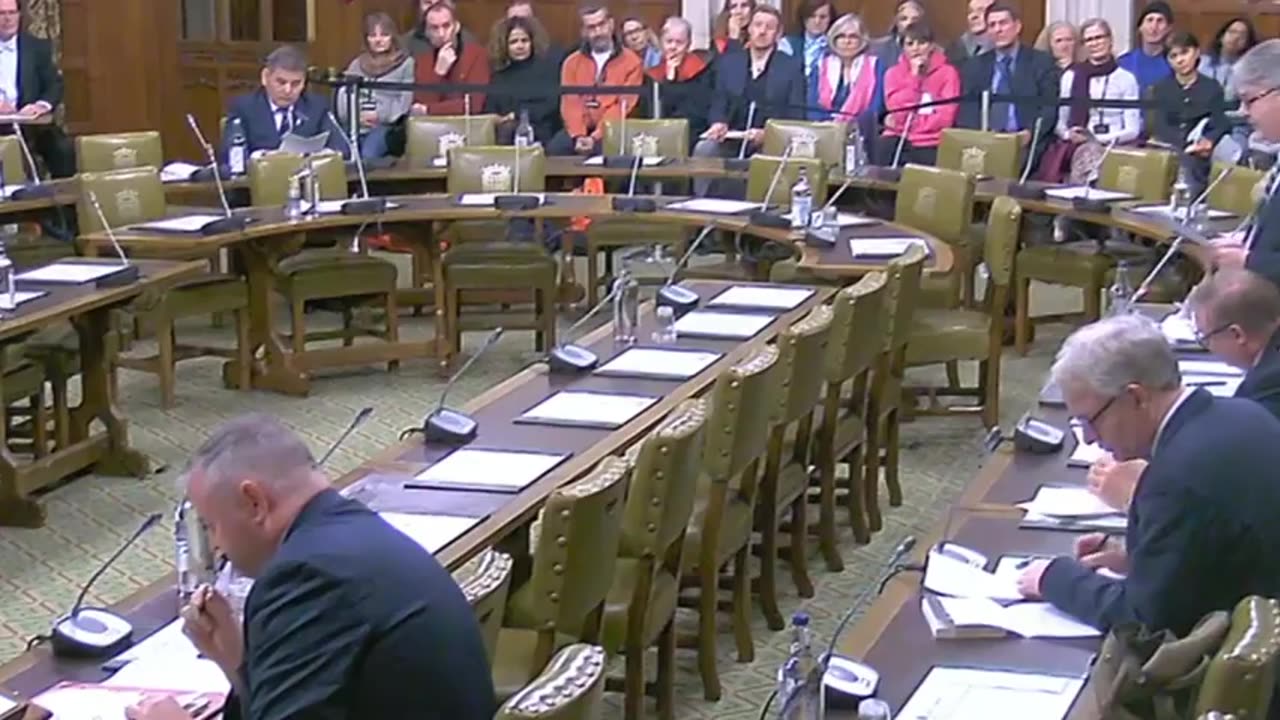Premium Only Content

Dr. John Campbell - WHO debate, UK Parliament
Dr. John Campbell
Dec 18, 2023
WHO debate, UK Parliament
https://www.youtube.com/watch?v=k4BjVEV0dnU
Mr. Philip Davies. Link to poorly attended UK Parliament debate on the International Health Regulations, Westminster Hall, Monday 18th December 2023, https://parliamentlive.tv/Event/Index...
Full transcript
https://hansard.parliament.uk/commons...
I also thank the 116,391 people who signed the petition, including 189 of my Shipley constituents, which helped secure this important debate.
In preparing for today’s debate, I looked back at the contributions made in April when another petition on this topic was debated here in Westminster Hall, as the hon. Member mentioned in her opening remarks. I have to say that I was disappointed by some of the rhetoric, when valid concerns were dismissed as an “overreaction and hysteria”. It is clear that this is—quite rightly, in my opinion—an important issue for the public. We can see that that is the case from not just the full Gallery, but the large numbers signing the petitions.
So what are we dealing with here? We have two international legal instruments, both designed to increase the WHO’s authority in managing health emergencies. The first concerns the amendments to the existing International Health Regulations 2005—the IHR—and the second is the World Health Organisation’s new pandemic treaty, which would support the bureaucracy and financing of the expanded IHR. Both instruments are designed to transfer decision-making powers to the World Health Organisation, with the admirable aim, no doubt, of improving how the world prevents and better prepares for disease outbreaks. However, in practice, what is being proposed could have a huge and detrimental impact on all parts of society and on our sovereignty. If the IHR amendments go through, countries will have undertaken to follow recommendations, not merely consider them: it is proposed to remove the word “non-binding” from article 1, while the regulations in article 42 are to be
“initiated and completed without delay”
by member states. Therefore, we can only assume that the intention behind the amendments is for them to be binding under international law.
I do not wish to over-egg the nature of the proposals, but I cannot help but be concerned by the thought of removing the word “non-binding”. There is much in the existing IHR that would suspend fundamental human and bioethical rights, such as requirements for vaccinations and medical examinations, and implementing quarantine or other health measures for suspect persons—in other words, mandates and lockdowns. It is all there in black and white under article 18. We may have become only too mindful of the harms of lockdowns, and I am sure that hon. Members will be aware of the latest findings published by the Centre for Social Justice about the harms caused by lockdowns. That is not to mention the non-existent science used to enforce wearing a face mask—the covid inquiry has also uncovered the fact that that was based on absolutely no science whatsoever.
At the debate in April, we were told by the then Minister that it is “simply not the case” that
“the instrument will undermine UK sovereignty and give WHO powers over national public health measures”.—[Official Report, 17 April 2023; Vol. 731, c. 34WH.]
I think it is worth revisiting this question, because I am not clear how national and parliamentary sovereignty can be upheld if the proposals are agreed. I draw attention to draft new article 13A, which calls for member states to
“undertake to follow WHO’s recommendations”
and to recognise the World Health Organisation not as an organisation under the control of countries, but rather as the
“coordinating authority of international public health response during public health Emergency of International Concern”.
-
 2:21
2:21
Rolling With You
6 hours agoThe FBI Just Got Nuked—And Nobody’s Talking About It…Robert Gouveia Reports
342 -
 3:31:01
3:31:01
FreshandFit
10 hours agoAfter Hours w/ Dan Cates
105K135 -
 1:37:17
1:37:17
Badlands Media
10 hours agoBaseless Conspiracies Ep. 128: The Accelerationist Cults Grooming Kids into Terrorism with BX
137K45 -
 2:44:29
2:44:29
TimcastIRL
12 hours agoBail DENIED For Leftist Who FIREBOMED Democrat Governor's Mansion, Mangione Effect | Timcast IRL
267K104 -
 24:05
24:05
Glenn Greenwald
16 hours agoAs U.S. Censorship Escalates, New Poll Reveals Declining Support for Israel: UNLOCKED Episode
204K146 -
 2:14:50
2:14:50
We Like Shooting
1 day ago $11.05 earnedWe Like Shooting 606 (Gun Podcast)
67.4K6 -
 1:00:41
1:00:41
Donald Trump Jr.
17 hours agoMake Main St Great Again, Interviews with Alex Marlow & John Phillips | TRIGGERED Ep.233
209K58 -
 1:45:23
1:45:23
megimu32
13 hours agoON THE SUBJECT: 2008 Called.. It Wants Its Chaos Back!
77.9K20 -
 1:01:53
1:01:53
BonginoReport
15 hours agoPolitical Violence on the Rise in America - Nightly Scroll w/Hayley Caronia (Ep.26) - 04/14/2025
189K112 -
 1:32:42
1:32:42
BlackDiamondGunsandGear
10 hours agoThey Don’t want you to Purchase 2A Related Products?
65.6K4